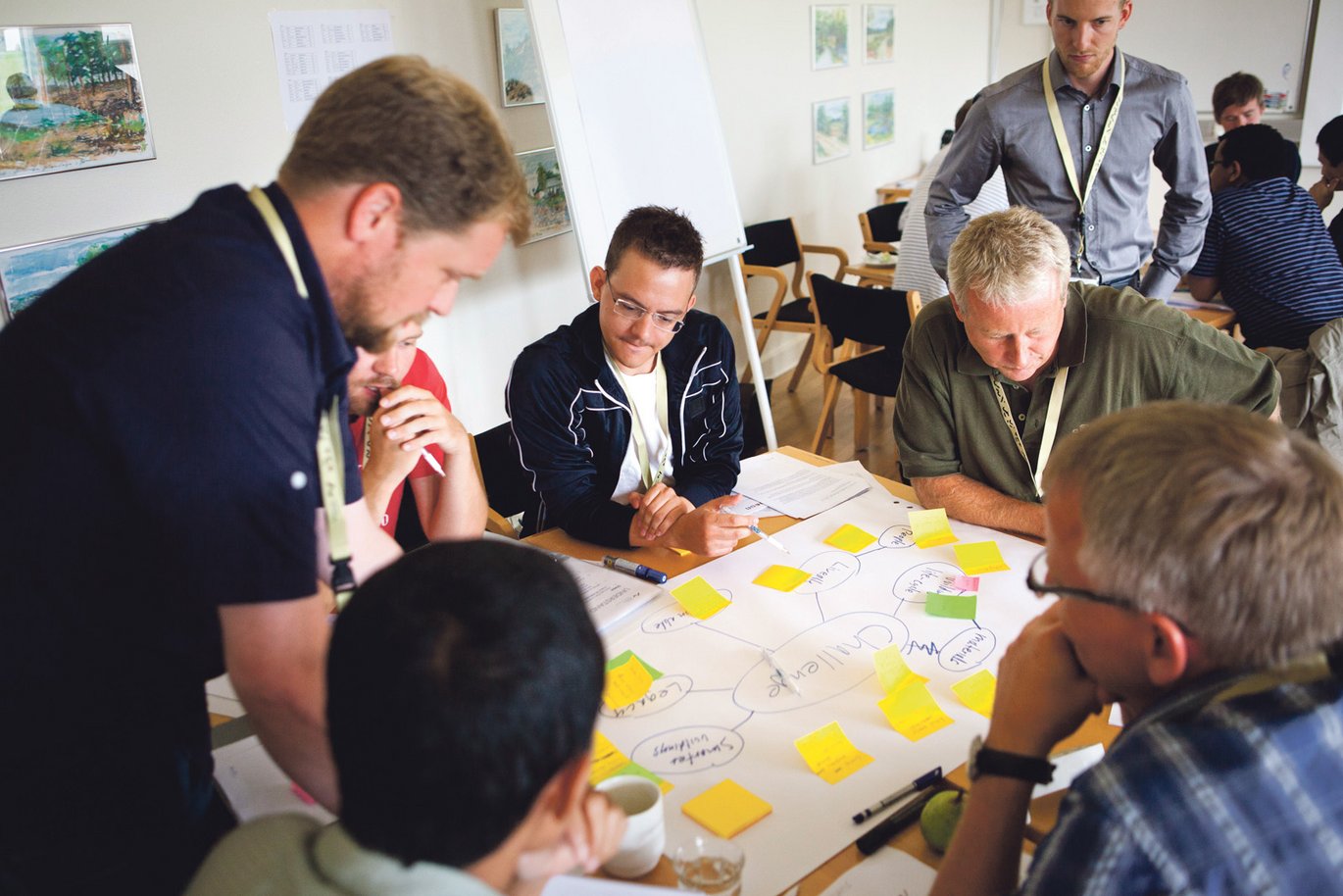PhD Challenge 2012: A question of teamwork
50 researchers from the School of Engineering got together for two days to find out how climate-friendly construction can be utilised to reduce CO2 emissions in the Municipality of Aarhus. The PhD Challenge is a new initiative aimed at raising the profile of engineering research and teaching engineers to make the most of each other’s expertise.

They’re under pressure. The six engineers (all men) have just been told that there are two hours left before the final deadline, when they will have to present their answer to this year’s PhD Challenge. And they still have one outstanding problem: they need to make their proposal more precise. For the past two days they have been working on their answer to the question “How can we reduce emissions of greenhouse gasses throughout the life cycle of our buildings – including materials, construction, operation and disposal?”
The question has been asked by the Municipality of Aarhus and the NCC construction group. The municipality aims to be CO2 neutral by the year 2030, and at least 35 per cent of total CO2 emissions in Aarhus come from energy consumption in houses and other buildings. 50 researchers divided into groups consisting of PhD scholars and supervisors have been given two days to find their answers to this question.
“Time is of the essence, and we now need to split the remaining tasks between us. I’ll start writing our abstract, someone else will design a poster, and I suppose our group really ought to find a name for itself,” says civil engineer and PhD scholar Claus Ballegaard Nielsen, who has already picked up his laptop and started to write.
The group say that they have grown more constructive during the past 24 hours. Instead of rejecting each other’s ideas, they have started to be more open to input from other group members as well as learning to appreciate the fact that their joint expertise can actually be combined to good effect. They have also agreed that their proposal should involve building a macro model capable of measuring or assessing the efforts made in relation to climate-friendly construction. After all, it’s easy enough to decide to install new, energy-efficient windows in a building, for instance. But it’s harder to measure the overall effect of taking such a step. So the group have decided to focus on data collection and control measurements – including user behaviour.
A good initiative
“It’s really beneficial for engineers like us to learn about these innovative processes,” reports Claus Ballegaard Nielsen when he gets a spare moment in his lunch break.
“So a PhD Challenge is a great idea because it simply forces us to think outside the box in relation to our expertise. As a rule, engineers tend to become far too concrete far too soon and start looking for specific solutions immediately. But during this kind of process we’re forced to spend some time together and try brainstorming for a while, considering things from an abstract point of view before we start getting more concrete.”
This is the first time Aarhus University has arranged the PhD Challenge, but the plan is to hold the event every year. And Claus Ballegaard Nielsen feels this is a really good initiative.
“Of course the task we’ve been set is fascinating in itself. But the greatest benefit lies in learning to adopt an interdisciplinary approach. I would actually like the event to become even more interdisciplinary so engineers weren’t the only specialists to be included. We could also learn a lot if we had to work alongside anthropologists or other researchers in the humanities, for instance. That would really pave the way to the creation of entirely new, interesting synergies.”
